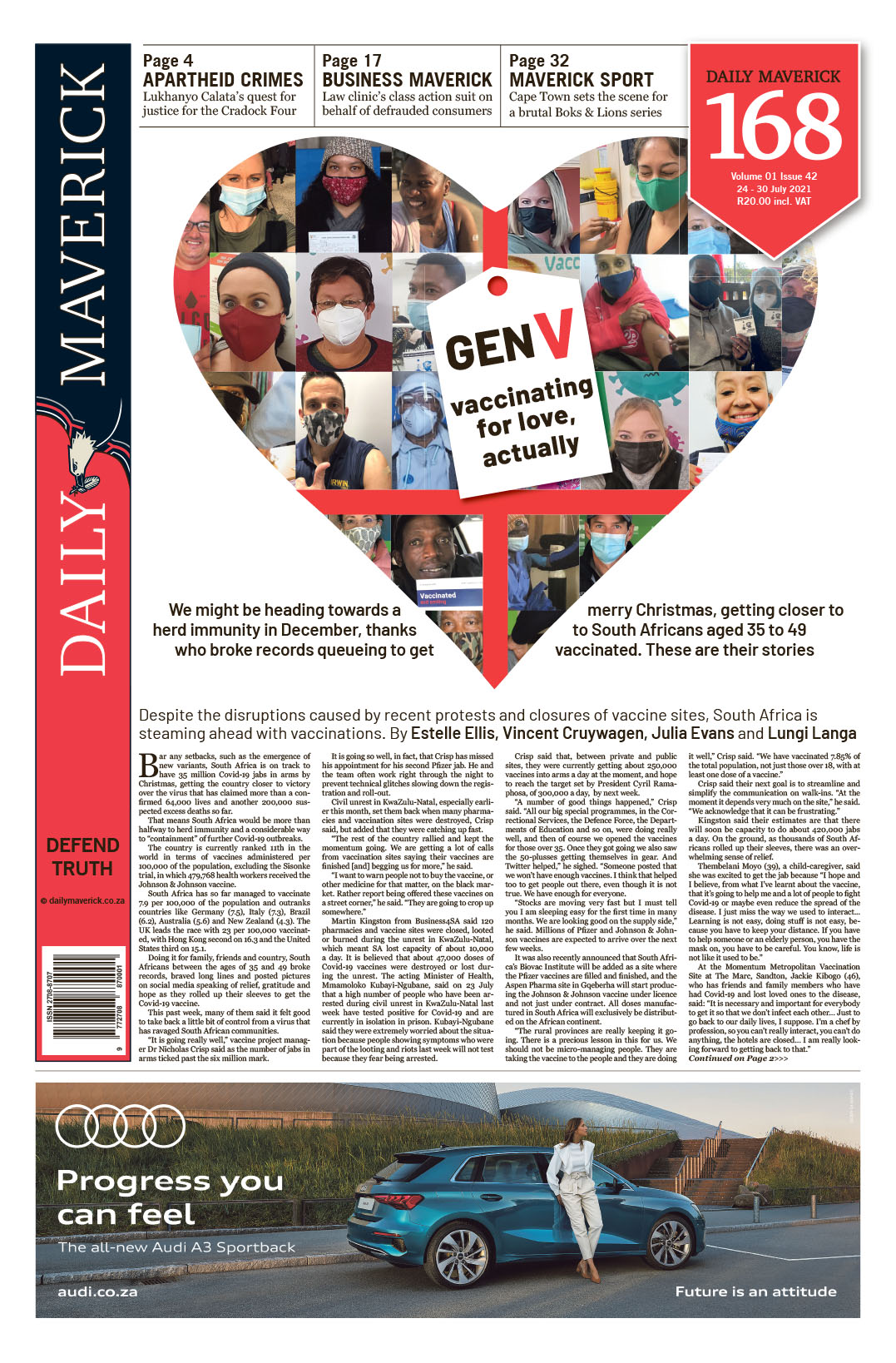First published in the Daily Maverick 168 weekly newspaper.
In processing the events of the past week, this quote by political theorist Hannah Arendt is apt: “I changed my mind and do no longer speak of ‘radical evil’… It is indeed my opinion now that evil is never ‘radical’, that it is only extreme, and that it possesses neither depth nor any demonic dimension. It can overgrow and lay waste the whole world precisely because it spreads like a fungus on the surface. It is ‘thought-defying’, as I said, because thought tries to reach some depth, to go to the roots, and the moment it concerns itself with evil, it is frustrated because there is nothing. That is its ‘banality’. Only the good has depth that can be radical.”
In 1962 Arendt was commissioned by The New Yorker to report on the trial of one of the chief architects of the Holocaust. Her writings about the trial were published as a book on “the lesson that this long course in human wickedness had taught us – the lesson of the fearsome, word-and-thought-defying banality of evil”.
Arendt also wrote that the Nazis fostered a deliberate disconnect from reality with what she calls “holes of oblivion”. Writer Maria Popova equates this behaviour with Donald Trump’s alternative facts. Arendt writes that “there are simply too many people in the world to make oblivion possible. One man will always be left alive to tell the story… Under conditions of terror most people will comply but some people will not.”
Arendt also wisely observed that “only the hypocrite is rotten to the core”.
Arendt’s study of evil was the work I needed to make sense of some of what we have witnessed in South Africa lately. The sentiments expressed by former president Jacob Zuma over the past couple of months, and actually throughout his presidency, are such a deliberate disconnect from reality. An example of this is the assertions he has made against the Constitutional Court, all because now the judges, some of whom he appointed, are judging him without fear or favour. Zuma is excellent at weaponising an egocentric victimhood in circumstances where he is clearly not a victim, challenging indisputable facts.
In his unsigned letter to the Constitutional Court, Zuma states that “what the Zondo Commission has done is inexcusable and I will live to see my vindication when, after squandering billions of much-needed public revenue, an independent court reviews and [sets] aside the findings of the Commission on the basis that it was not established in accordance with our Constitution”. This is a typical deflection by Zuma; a deflection from the billions squandered under his presidency and a deflection from the fact that he established the Zondo Commission and, now that it is his turn to account, all of a sudden the commission is unconstitutional.
Where we stand right now as a wounded country, Zuma could never be a victim – we are his victims. But, unfortunately, so many people have been roused by his manipulative rhetoric that they were prepared to burn down the country for his “vindication”.
We also witnessed political leaders, who had previously called for Zuma to fall, now sympathising with his egocentric cause. Perhaps they share in his victimhood and gain to benefit from an even more impotent state.
Professor Griselda Pollock, an expert in Arendt’s work, shares that the rise of populism is facilitated by those who feel isolated in our society, who then become susceptible to ideologies “which give them a place in something. But the place they have is ultimately sacrificial; they don’t count for anything; all that counts is the big idea.” No doubt our constitutional democracy has isolated a large portion of our society – those who do not have jobs, who cannot afford quality education or who live below the poverty line. Some of those who feel isolated were susceptible to Zuma’s rhetoric aimed at destabilising the state. Zuma’s disconnect from reality collided with a crushing pandemic fertilising the ground for the incitement of an insurrection.
I no longer think of Zuma and of his co-conspirators as radical. It was revealed to us once again that evil possesses no depth. The treasonous evil we saw can only come from the failure to think. It is not radical. What is radical are the people who did not comply with the orders “to let it burn”. And those who did comply only learnt that to the inciters they count for nothing.
As a country, we can only avenge this moment by doing the work to transform and expand our constitutional democracy into one in which we all feel that we count for something. DM168
This story first appeared in our weekly Daily Maverick 168 newspaper which is available for free to Pick n Pay Smart Shoppers at these Pick n Pay stores until 24 July 2021. From 31 July 2021, DM168 will be available for R25 at Pick n Pay, Exclusive Books and airport bookstores.

















 Become an Insider
Become an Insider
Outstanding, thank you!
“Where we stand right now as a wounded country, Zuma could never be a victim – we are his victims. But, unfortunately, so many people have been roused by his manipulative rhetoric that they were prepared to burn down the country for his “vindication”.”
First apartheid and now the ANC. Will the good people of South Africa forever have to moan and wail under the inhuman burden foisted upon them by evil, self-serving politicians?
thank you for making this connection to Hannah Arendt’s work – very helpful